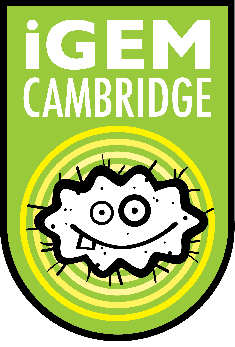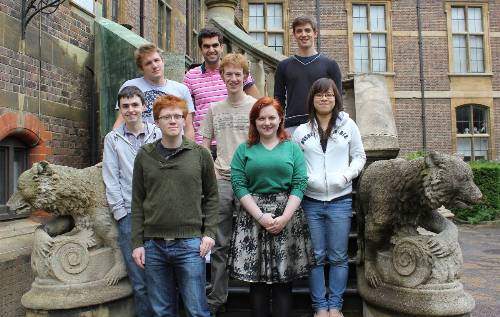Team:Cambridge
From 2012.igem.org
CharlotteBG (Talk | contribs) |
|||
| Line 4: | Line 4: | ||
|- | |- | ||
| | | | ||
| - | ''Where other teams have characterised inducible promoters and other sensors, we intend to create a new, applied, unifying standard for integrating biological sensors into electronic circuits in an open, quantitative and modular fashion. This open source chassis would be a tool for other teams to build on, and stands to | + | ''Previous iGEM teams have charaterised an impressive array of inducible promoters, along with other elements of biosensing circuitry. But, to date, the output from each is not consistent, and, in spite of the unifying biobrick standards used, do not necessarily couple together to make integrated test kits. The Cambridge iGEM 2012 team aim to take the true meaning of biobricks to heart, by creating an applied biosensor standard available for use by all subsequent teams, as well as, potentially, by industry and researchers in the field. |
| + | |||
| + | The biosensor aims to be modular in design, allowing the kits to be tailored to an individual's requirements, and to use light as an output to allow computer interfacing. We aim to use two luciferases, one to give a read-out of the input, and the other to normalise the | ||
| + | |||
| + | Where other teams have characterised inducible promoters and other sensors, we intend to create a new, applied, unifying standard for integrating biological sensors into electronic circuits in an open, quantitative and modular fashion. This open source chassis would be a tool for other teams to build on, and stands to | ||
We intend to cooupl'' | We intend to cooupl'' | ||
Revision as of 14:55, 2 July 2012
| Abstract: | |
|
Previous iGEM teams have charaterised an impressive array of inducible promoters, along with other elements of biosensing circuitry. But, to date, the output from each is not consistent, and, in spite of the unifying biobrick standards used, do not necessarily couple together to make integrated test kits. The Cambridge iGEM 2012 team aim to take the true meaning of biobricks to heart, by creating an applied biosensor standard available for use by all subsequent teams, as well as, potentially, by industry and researchers in the field. The biosensor aims to be modular in design, allowing the kits to be tailored to an individual's requirements, and to use light as an output to allow computer interfacing. We aim to use two luciferases, one to give a read-out of the input, and the other to normalise the Where other teams have characterised inducible promoters and other sensors, we intend to create a new, applied, unifying standard for integrating biological sensors into electronic circuits in an open, quantitative and modular fashion. This open source chassis would be a tool for other teams to build on, and stands to We intend to cooupl | |
| Team Cambridge |
| Home | Team | Official Team Profile | Project | Parts Submitted to the Registry | Modeling | Notebook | Safety | Attributions |
|---|
 "
"

